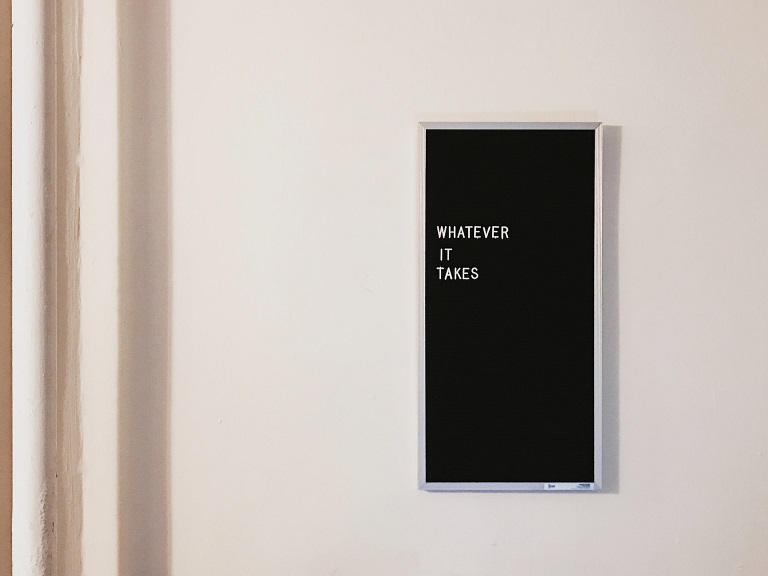What Is Residential Drug Rehab?
Inpatient treatment, likewise described as residential treatment, provides the highest level of rehab services for clients diagnosed with alcohol or other drug addiction. Normally, inpatient drug rehab programs include medical detox and integrated mental health services. With your consent, rehab staff might also talk with your relative and seek advice from specialists you may already be working with to resolve your needs and difficulties. Due to the fact that addiction is a disease that affects your body, mind and spirit, a multidisciplinary group is combined to supply you with a holistic recovery plan. Your licensed team members for residential treatment might consist of:
- Physicians
- Nurses
- Psychiatrists
- Psychologists
- Certified marriage and family therapists
- Licensed addiction counselors
- Nutritional experts
- Health and fitness professionals
- Continuing care coordinators
- Monetary supporters
- Scientific case managers
Prepared to take the next step?
Call (866) 503-4950 today and our group of recovery specialists will determine the most efficient substance abuse treatment programs and services to assist you recover your life from addiction.

The Benefits of Residential Drug Rehab
Residential rehab, and numerous kinds of inpatient rehab, use particular advantages that other forms of treatments might not always provide. A few of these benefits include:
- The ability to detox in a safe and safe environment offering 24/7 care and assistance.
- The ability to work through drug abuse problems, codependency, co-occurring disorders, and injury in a safe and safe environment.
- Various treatments.
- A tight-knit neighborhood with whom to process all phases of substance abuse recovery.
Regardless of the big amount of benefits that residential rehab offers, all kinds of substance abuse treatment prove useful for those wanting to recover from substance abuse issues. For more information about numerous inpatient and residential treatment programs near you in Mullica Hill, New Jersey, call: (866) 503-4950
Inpatient Vs. Outpatient Rehab in Mullica Hill New Jersey
Inpatient And Outpatient Addiction Treatment
Alcohol and drug treatment programs generally fall under 1 of 2 classifications– inpatient or outpatient rehab. While similarly focused on rehab, each type has distinct attributes and advantages to provide. Inpatient rehabs are intensive, residential treatment programs designed to treat major addictions. Outpatient rehabilitations are part-time programs, enabling the recovering user to keep going to work or school throughout the day. It is very important that both the private with a substance use disorder (SUD) and their loved ones comprehend the differences prior to picking an inpatient or outpatient treatment program. Exploring all alternatives prior to deciding can put you or a loved one on the road to recovery long-lasting sobriety.Inpatient Rehab And Treatment
Inpatient recovery programs, also called residential treatment, need clients to check themselves into a regulated environment to overcome their dependencies. Clients remain at a center with 24-hour medical and emotional support.Preparing For Inpatient Rehab in Mullica Hill
It is essential to correctly prepare for rehab. There’s no set quantity of time required to prepare for treatment. It is necessary to set an entry date for rehab and to have actually affairs settled prior to that date. A few of the important things to take care of prior to entering rehab include:- Speaking to your company
- Finding living plans for kids or other family members
- Planning how to get to and from the recovery center
- Finding out what individual items are allowed
Family Assistance And Contact In Inpatient Rehab
Successful inpatient clinics know family involvement is essential to recovery. Relative can contact loved ones in residential treatment to provide emotional support and support. When it comes to how and how typically residents can interact with their loved ones, each inpatient center’s policy is different. Some rehab centers also offer counseling for the family of the individual in treatment.Every Day Life During Inpatient Rehab in Mullica Hill, NJ
During inpatient treatment, locals have the ability to totally concentrate on getting well and sober without the distractions of everyday life. A typical day in residential treatment is carefully scheduled and accounted for. Psychologists, counselors, and psychiatrists meet patients individually and in group settings to guide inpatient recovery. A typical residential program runs anywhere from 28 days to 6 months. The primary step in inpatient treatment is medically assisted detox. Physicians and addiction professionals keep track of clients’ vital signs while the drugs exit the system. Drug yearnings are common during detox and can be hard to get rid of, typically resulting in relapse. Constant medical care provided throughout inpatient treatment helps defend against relapse. Clinicians can supply essential medication and medical knowledge to reduce cravings and withdrawals. The brain responds in a different way to various addictive substances in time and a course of frequent use. Withdrawal signs aren’t enjoyable for any drug, however some drugs need to never ever be quit without medical supervision. Some withdrawals can be fatal. Lethal withdrawals are linked to drugs like artificial Opiates, Benzodiazepines, alcohol, and Heroin. During inpatient rehab, clients have access to 24-hour medical attention. This attention can suggest the distinction between regression and recovery.Outpatient Rehab And Drug Abuse Treatment
Outpatient drug rehab is less limiting than inpatient programs. Outpatient recovery programs normally need 10 to 12 hours a week invested checking out a local treatment center. These sessions concentrate on substance abuse education, individual and group counseling, and teaching addicted people how to cope without their drug. Outpatient drug rehab can be an excellent standalone choice for someone with a mild addiction, or it can be part of a long-term treatment program. Outpatient drug rehab can last 3 to 6 months– something similar to inpatient treatment– or over a year.Outpatient Detox Programs in Mullica Hill
Clients with mild-to-moderate drug withdrawal symptoms might find outpatient cleansing a fitting alternative to residential detox. Outpatient detox is safe, effective, and takes less time to finish than inpatient detox; the typical outpatient detox is 6.5 days. Clients must go to a medical facility or other treatment facility for physical and mental check-ups during outpatient detox. Clinicians or physicians may administer medications on-site to soothe withdrawal signs like anxiety, anxiety, and increased heart rate.How Does Detox Work?
Detox is the initial step in assisting your brain and body recover from substance abuse. The detox process begins with examinations by medical physicians and nurses to identify which, if any, medical interventions are needed. Detox is primarily a time to flush the chemicals from your body, which can be an uncomfortable experience without the right treatment to help reduce pain and/or drug cravings. Medical staff will work with you to examine your level of discomfort and supply you with medications, if required, to address any discomfort or yearnings. Throughout the detox process, you will be medically kept track of 24/7 up until medical staff determine you are steady adequate to take part in rehab programming and activities.Social Assistance in Mullica Hill Throughout Outpatient Rehab
Outpatient drug rehab permits those in recovery to stay in your home during treatment. Those undergoing outpatient drug rehab can continue working and stay near family and friends. Outpatient treatment centers normally conduct conferences in the evening or in the early morning, assisting those in the program maintain their typical schedules. Twelve-step groups like Alcoholics Anonymous (AA) and Narcotics Anonymous (NA) might be used as part of outpatient treatment. Research studies reveal that participating in recovery groups like AA and NA assists recovering addicts remain sober. Many individuals with a substance use disorder (SUD) likewise turn to outpatient treatment after finishing an inpatient program as part of their continued recovery.Inpatient treatment programs generally cost more than outpatient drug rehab. The on-hand healthcare and psychiatric therapy offered to residential rehab clients increases treatment expenses. The rate distinction need to not motivate or prevent someone from selecting the very best treatment route for them.
How Much Does Residential Drug Rehab in Mullica Hill Cost?
The cost of inpatient rehab programs depends on the treatment center chosen, the level of clinical care suggested, and the length of time in treatment. The amount you pay will likewise depend upon whether you have the ability to access insurance advantages to assist cover the cost or you’re paying out-of-pocket. Most treatment centers are in-network with many insurance carriers, and the majority of patients use their medical insurance benefits to help cover treatment expenses. Insurance policies and benefits differ greatly, so it’s important to consult your provider about coverage specifics in your case. Some centers provide patient financial support funds, on a restricted basis, to help balance out the cost of addiction treatment for certifying patients – please call (866) 503-4950 today to ensure you certify.Residential Drug Rehab Mullica Hill New Jersey?
Your initial step is to call our friendly assistance team on (866) 503-4950 for a private phone evaluation. You will talk with a recovery specialist who will identify whether drug or alcohol treatment is required and, if it is, will suggest the appropriate level of care and work with you to collaborate insurance advantages. If alcohol or drug addiction is not plainly indicated or if you’re not all set to commit to an inpatient stay, you can benefit from other services such as mental health sessions, coaching, watch a webinar, or listen to a podcast to get more information or to get motivation.Whatever The Decision, Recovery Is Around The Corner
No matter which treatment option in Mullica Hill you pick for you or a loved one, rehab can alter your life. Addiction is a chronic disease, and recovery is a long-lasting process. Doctor, mental health counselors, and neighborhood groups like AA can teach the required skills to prevent relapse. Take the first step towards recovery and call a treatment service provider today.Ready to take the next step?
Call (866) 503-4950 today and our group of recovery professionals will identify the most effective drug abuse treatment programs and services to help you reclaim your life from addiction.

